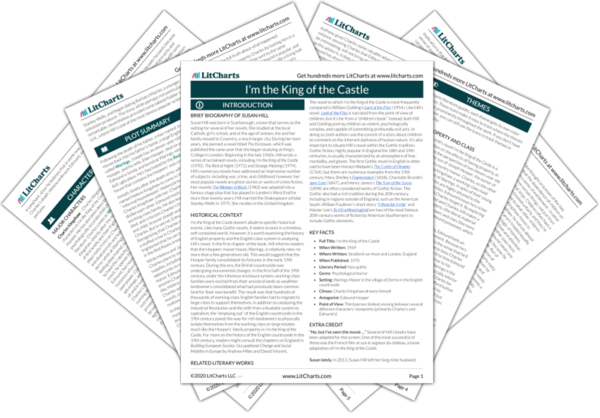It’s interesting that even when Charles runs away from Edmund, he is, in a sense, doing Edmund’s bidding by following through on a dare. Try as he might, Charles can’t quite break free from Edmund’s influence. Even when he’s far away from Warings, he continues obeying and thinking about his tormentor. This marks a turning point in the novel, after which Edmund’s bullying becomes increasingly psychological and abstract.
